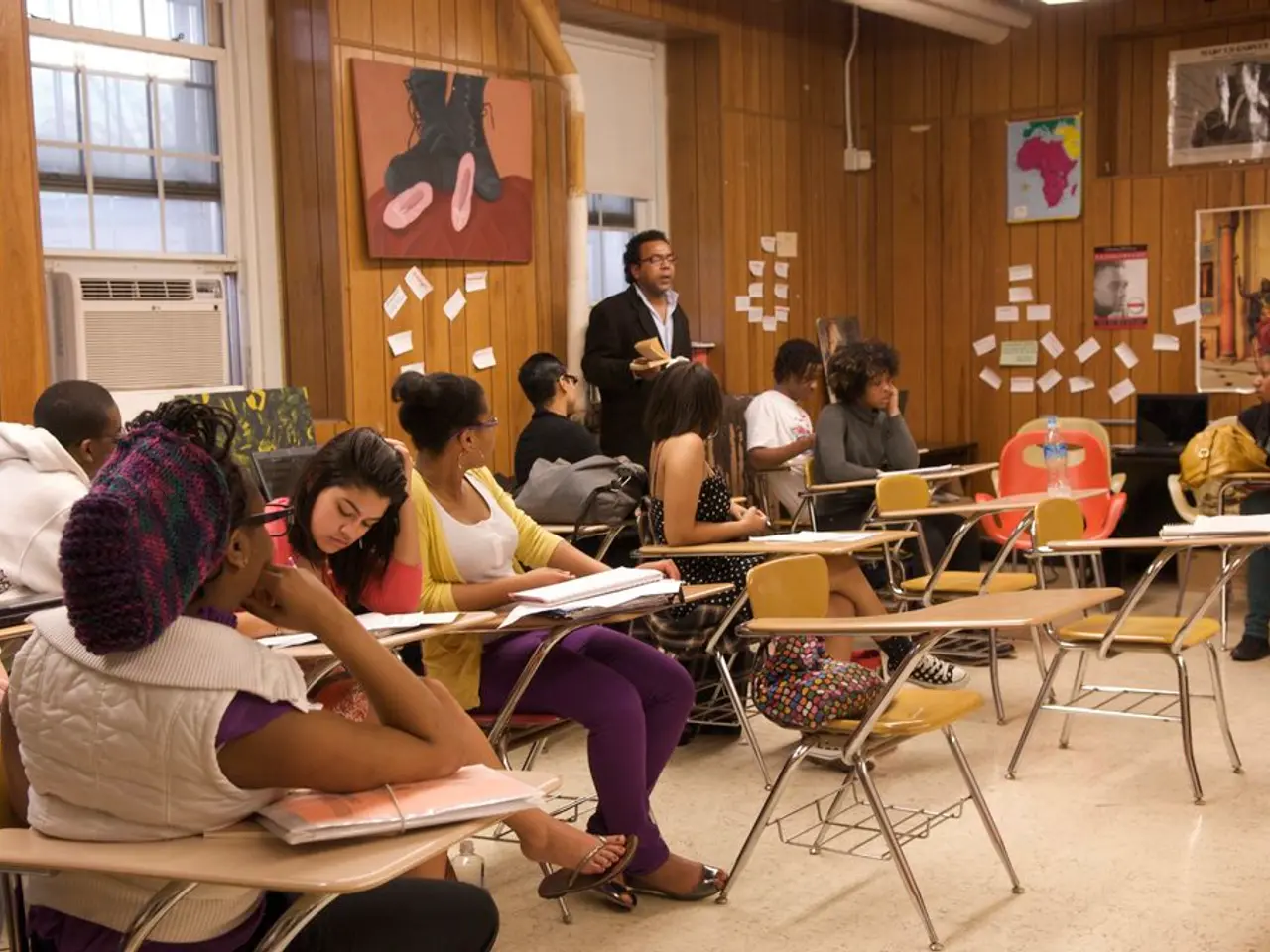Major Players in the Educational Technology Sector Embrace Artificial Intelligence: Explanation Provided
Transforming Education: The Rise of AI in Personalized Learning
AI is making a significant impact on the education sector, moving away from the traditional "one-size-fits-all" model towards a more flexible, engaging, and efficient learning experience tailored to each student.
Jane Rosenzweig, Director of the Harvard College Writing Center, asserts that many existing AI tutors only provide on-demand versions of Wikipedia articles, not deeper insights. However, Alden Do Rosario, CustomGPT.ai's CEO and founder, believes AI will change how students learn, and open book tests will evolve into open AI tests.
One of the key advantages of AI in education is its ability to enhance personalized learning. AI significantly improves this by analysing vast amounts of student data to adapt the difficulty, pace, and content type in real-time. This personalization increases student engagement and improves academic outcomes by delivering instruction precisely aligned with what a student needs to learn and how they learn best.
Adaptive Learning Pathways are a significant impact of AI on personalized learning. AI systems modify lesson complexity and speed dynamically to keep students optimally challenged without overwhelming them. Instant Feedback is another crucial aspect, with learners receiving immediate, specific feedback, enabling quicker identification and addressing of knowledge gaps.
AI also provides Personalized Resource Recommendations, suggesting additional learning materials such as videos, articles, or simulations tailored to individual progress and interests. Intelligent Tutoring Systems (ITS) simulate one-on-one tutoring by offering adaptive hints, scaffolded feedback, and conversational interaction using natural language processing, enhancing learning especially in remote or hybrid contexts.
Automated Grading and Assessment is another benefit, with AI automating grading for assignments and tests, speeding feedback to students and reducing educators’ administrative burdens. Data-Driven Insights for Educators are also generated, with AI analysing student performance across assessments to recommend targeted interventions and personalized activities, aiding educators in competency-based approaches and curriculum adaptation.
Examples of AI tools used in personalized learning include ALEKS, DreamBox, Squirrel AI, Duolingo, ClassIn, and Microsoft's Reading Coach tool.
Deirdre Quarnstrom, Vice President of Education at Microsoft, suggests that AI has the potential to exponentially increase student access to personalized learning. Microsoft CoPilot, powered by GPT technology, helps teachers generate lesson plans and assessments. Quarnstrom asserts that personalized learning benefits everyone.
Google's flagship AI model, Gemini, is available in Workspace for education, and Apple has recently partnered with OpenAI, which may have implications for teachers and students.
However, a recent review of research found students saw only modest benefits from using ChatGPT-style tutors. Despite this, the potential for AI to revolutionize education and provide a more personalized, efficient, and engaging learning experience remains undeniable.
AI's influence on education is transforming traditional methods, shifting towards personalized learning by utilizing technology such as digital tools and artificial-intelligence (AI). Teachers can use AI to craft learning materials like lesson plans and assessments, such as Microsoft's CoPilot.
Personalized Learning Pathways enhance the learning experience by adapting lesson complexity and pace, ensuring each student remains challengingly optimized. Intelligent Tutoring Systems (ITS) offer conversational interaction and adaptive hints that mimic one-on-one tutoring, benefiting learners in remote or hybrid settings.
AI also suggests tailored learning resources, like ALEKS, DreamBox, Squirrel AI, Duolingo, ClassIn, and Microsoft's Reading Coach tool. AI systems can automatically grade assignments and tests, speeding up feedback delivery for students while freeing educators from administrative duties.
Data-driven insights are generated from student performance assessment, guiding teachers to recommend targeted interventions and personalized activities. AI's potential for education goes beyond improving engagement and academic outcomes; it could exponentially widen student access to personalized learning, as Deirdre Quarnstrom at Microsoft suggests.
Online education has expanded its reach with AI, and tools like Google's Gemini and Apple's partnership with OpenAI potentially pose new opportunities for teachers and students in the field of education-and-self-development. While some research suggests modest benefits from AI tutors, the overall transformative capacity of AI in providing a more personalized, efficient, and engaging learning experience remains undeniable.




